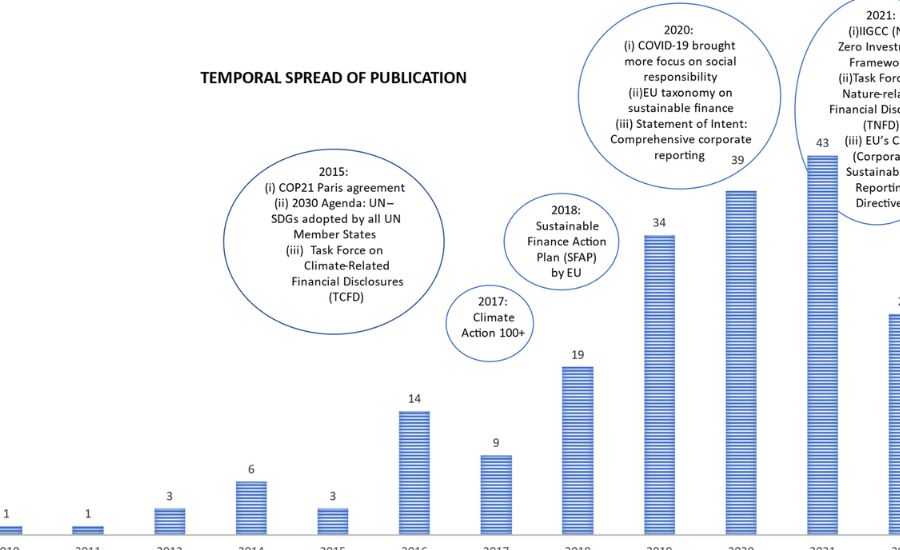R-12299 Sr. Business Information Security Officer – Government Programs, Position & More
Introduction
In state-of-the-art speedy-paced virtual global, safeguarding touchy statistics is greater vital than ever, mainly within authorities programs where facts protection is vital to country wide protection. The function of a Senior Business Information Security Officer (BISO) is critical in ensuring that those packages keep the highest degrees of security and integrity. BISOs are answerable for overseeing the safety of facts, enforcing protection protocols, and mitigating dangers that could jeopardize the confidentiality and consider of government initiatives.
The BISO’s duties span strategic planning, threat management, and coordination throughout diverse teams to make sure compliance with both inner and external security guidelines. These specialists need a mixture of technical know-how and strong communique capabilities to navigate complicated protection challenges. They must live in advance of evolving cyber threats and ensure that authorities facts stays covered from unauthorized get entry to, breaches, or other vulnerabilities.
The significance of the BISO cannot be overstated, as they play a pivotal role in maintaining the trust and effectiveness of presidency applications. Through their management, BISOs contribute to the fulfillment of safety efforts that defend each sensitive information and the national hobbies tied to it. Their information is important to making sure that authorities operations keep securely in a swiftly converting technological environment. In this article we;ll read about R-12299 Sr. Business Information Security Officer – Government Programs.
What is a Business Information Security Officer (BISO)?

A Business Information Security Officer (BISO) performs a crucial management position inside an company, making sure the safety of sensitive facts and assisting the integrity, confidentiality, and availability of facts. Unlike conventional IT protection roles that focus entirely on technical factors, the BISO bridges the distance among commercial enterprise goals and cybersecurity strategies. Their primary responsibility is to align facts safety projects with organizational targets, fostering a safety-aware way of life that permeates every stage of the enterprise. By engaging with stakeholders from pinnacle executives to regular personnel, the BISO ensures that everyone knows and follows protection protocols.
In the context of government packages, the position of the BISO is even more crucial because of the touchy nature of the facts worried. The BISO is tasked with safeguarding countrywide protection statistics and shielding in opposition to cyber threats, records breaches, and unauthorized access. To accomplish this, they work intently with IT groups to enforce safety features consisting of regulations, methods, and security technology, whilst additionally making sure compliance with prison and regulatory requirements. The BISO’s function extends beyond the technical, requiring a strategic approach to cybersecurity that aligns with the wider business and governmental objectives.
Understanding the SR. Business Information Security Officer Position
The Senior Business Information Security Officer (SR. BISO) holds an elevated position within the BISO hierarchy, carrying more extensive responsibilities and a broader scope of duties. The SR. BISO is entrusted with overseeing intricate security programs within government agencies and ensuring adherence to national and international security frameworks. As a senior figure, they play an integral role in shaping cybersecurity strategies, often collaborating with senior leadership and executives to formulate policies that impact the organization’s long-term security approach.
In addition to managing day-to-day security efforts, the SR. BISO is often tasked with developing long-term security strategies, advising on risk management, and taking the lead in response to security incidents. This advanced role demands not only in-depth technical expertise but also a strategic mindset to navigate complex challenges, including regulatory requirements, financial constraints, and the ever-changing cybersecurity landscape. The SR. BISO’s decisions directly influence the effectiveness and resilience of government programs, ensuring that sensitive data is protected and secure in an increasingly digital world.
Skills Required for the R-12299 Sr. Business Information Security Officer
The role of the Senior Business Information Security Officer (SR. BISO) requires a diverse skill set to navigate the complex and constantly evolving landscape of cybersecurity. Here are the key skills needed for this critical position:
1. Technical Expertise:
A deep know-how of cybersecurity gear and strategies is vital for a SR. BISO. This includes talent with numerous protection technology which include firewalls, encryption systems, and intrusion detection solutions. Knowledge of superior threat intelligence permits the SR. BISO to expect and mitigate potential security risks, making sure that the business enterprise is blanketed from evolving cyber threats.
2. Regulatory Knowledge:
A solid grasp of compliance standards and guidelines is critical, specifically while dealing with government information. The SR. BISO need to be nicely-versed in frameworks like GDPR, HIPAA, and U.S. Government-specific rules, together with NIST and FISMA. This guarantees that security practices are aligned with prison necessities and that the corporation remains compliant with both domestic and global requirements.
3. Leadership Skills:
Given the seniority of the role, leadership abilities are crucial. The SR. BISO must effectively manage cross-functional teams, leading security initiatives across diverse government projects. They need to foster collaboration among various departments, ensuring that security measures are integrated into all aspects of organizational operations.
4. Analytical Thinking:
Problem-solving skills are essential in this role, as the SR. BISO must identify potential threats, analyze risk scenarios, and design effective security solutions. Their capacity to think severely and strategically is fundamental to retaining the integrity of the company’s data systems.
5. Communication:
The capability to speak complicated technical concepts definitely is a ought to. The SR. BISO have to bridge the gap among technical groups and non-technical stakeholders, including executives and policymakers, ensuring that everyone knows the importance of safety protocols and rules.
Challenges within the Role:
1. Evolving Threat Landscape:
The cybersecurity environment is continuously converting, with new threats emerging often. The SR. BISO must live up-to-date with the cutting-edge cybersecurity trends, system, and techniques to live earlier of cybercriminals.
2. Resource Constraints:
Government programs often face budget limitations, making it hard to balance the need for robust safety with monetary restrictions. The SR. BISO must find progressive methods to maximize to be had sources with out compromising safety.
Three. Complex Compliance Requirements:
The SR. BISO have to navigate a complex net of policies throughout numerous jurisdictions. This calls for meticulous interest to element and a comprehensive understanding of the compliance panorama.
3 Integration Across Teams:
Coordinating efforts across multiple teams with different priorities can be difficult. The SR. BISO must possess strong collaboration skills to ensure that security is consistently prioritized across all departments and projects.
Security Governance and Risk Management for Government Programs
Security governance is essential to protecting sensitive data in government initiatives. The responsibility for creating and executing strong policies, processes, and frameworks that influence the entire security strategy falls on the Senior Business Information Security Officer (SR. BISO). This entails creating a governance framework that encourages openness, responsibility, and cooperation between the several branches of government while guaranteeing that every department complies with uniform security requirements.
An essential part of the SR. BISO’s role is risk management, where they focus on identifying, evaluating, and mitigating potential security risks. By working closely with risk management teams, the SR.BISO guarantees that security measures are in line with the organization’s risk tolerance and assists in carrying out comprehensive risk assessments. Government systems are shielded from a variety of hazards, such as insider threats and cyberattacks, by this proactive approach to risk management. Additionally, it guarantees that security expenditures are judiciously distributed to tackle the most critical weaknesses, thus enhancing the robustness of government functions and data integrity. In a cybersecurity environment that is becoming more complicated, effective governance and risk management are essential to preserving the security and confidence of government programs.
Regulations and Compliance Requirements for Government Programs

Government packages are required to stick to stringent regulatory and compliance requirements to protect touchy records. The Senior Business Information Security Officer (SR. BISO) plays a important function in ensuring that each one protection practices meet the important legal and regulatory requirements. This includes:
FISMA (Federal Information Security Modernization Act): This law mandates federal corporations to secure their data systems. The SR. BISO ensures that authorities programs follow FISMA by using overseeing continuous monitoring and spark off reporting of safety incidents.
NIST (National Institute of Standards and Technology): NIST gives a comprehensive cybersecurity framework. The SR. BISO is responsible for making sure that authorities applications put into effect NIST’s guidelines, which recognition on fine practices for identifying, defensive, detecting, responding to, and recovering from cybersecurity threats.
HIPAA (Health Insurance Portability and Accountability Act): For authorities entities dealing with healthcare data, the SR. BISO ensures that each one medical statistics is controlled in compliance with HIPAA’s safety and privateness guidelines, making sure its confidentiality and integrity in the course of garage and transmission.
By coping with those regulations, the SR. BISO ensures that government packages not only meet compliance requirements but additionally reduce the danger of felony liabilities while improving the general protection posture of the organization.
Technical Skills Required for an SR. Business Information Security Officer
The position of the Senior Business Information Security Officer (SR. BISO) needs a vast variety of technical knowledge to effectively guard and manage government information structures. Key capabilities required for this senior-level function include:
Network Security: A deep knowledge of network security is vital for the SR. BISO. This consists of safeguarding government networks from vulnerabilities and cyber threats using tools like firewalls, intrusion detection structures (IDS), intrusion prevention systems (IPS), and steady Virtual Private Networks (VPNs).
Cryptography: Ensuring the safety of touchy records is a pinnacle priority for the SR. BISO. Expertise in encryption methods, consisting of symmetric and uneven cryptography, is crucial for imposing secure statistics garage and transmission throughout structures.
Incident Response: When safety breaches occur, the SR. BISO need to lead the response efforts. This includes coordinating breach containment, reading the source of the assault, and setting up measures to prevent comparable incidents in the future.
Beyond these technical abilities, the SR. BISO should also own a strategic perspective on how information protection aligns with the enterprise’s ordinary task. Their capacity to integrate protection practices with organizational targets ensures a cohesive technique to danger control and strengthens the organisation’s cybersecurity resilience.
FACT:
- Role of the Senior Business Information Security Officer (SR. BISO): The SR. BISO ensures the security and integrity of government programs, managing sensitive information and mitigating risks to national security.
- Responsibilities: The SR. BISO is responsible for overseeing security efforts, enforcing protocols, and ensuring compliance with security guidelines. They also engage in risk management, strategic planning, and coordination across various teams to safeguard data.
- Key Skills Required:
- Technical Expertise: Proficiency in cybersecurity tools like firewalls, encryption systems, and intrusion detection/prevention systems.
- Regulatory Knowledge: Familiarity with compliance frameworks like GDPR, HIPAA, NIST, and FISMA.
- Leadership: Ability to manage cross-functional teams and foster collaboration in implementing security measures.
- Analytical Thinking: Ability to assess risks, design solutions, and solve complex security problems.
- Communication: Effectively communicate complex technical concepts to non-technical stakeholders.
- Challenges Faced by SR. BISO:
- Evolving Threats: Continuously adapting to new cybersecurity threats.
- Resource Constraints: Managing security within budget limitations.
- Complex Compliance Requirements: Navigating complex legal and regulatory landscapes.
- Integration Across Teams: Coordinating security measures across various departments.
- Security Governance and Risk Management: The SR. BISO plays a vital role in creating security governance frameworks and conducting risk assessments to protect sensitive data and government systems.
- Regulations and Compliance: The SR. BISO ensures compliance with key regulations such as FISMA, NIST, and HIPAA to protect sensitive government data.
- Technical Skills: A deep understanding of network security, cryptography, and incident response strategies is essential for this role.
These facts highlight the core responsibilities, required skills, challenges, and compliance requirements associated with the SR. BISO role in government programs.
FAQs about the Senior Business Information Security Officer (SR. BISO) Role in Government Programs
- What is the role of a Senior Business Information Security Officer (SR. BISO)? The SR. BISO is responsible for overseeing the security efforts of government programs, ensuring the protection and integrity of sensitive data, managing risks, and ensuring compliance with legal and regulatory security standards.
- What key skills are required for the SR. BISO position? Key skills include technical expertise in cybersecurity tools, knowledge of regulatory compliance standards, leadership abilities, analytical thinking, and strong communication skills to engage with both technical and non-technical stakeholders.
- What challenges does the SR. BISO face in government programs? The SR. BISO must address evolving cybersecurity threats, manage resource constraints, navigate complex compliance requirements, and integrate security measures across various teams within the organization.
- How does the SR. BISO ensure compliance with regulations? The SR. BISO ensures compliance with key regulations such as FISMA, NIST, and HIPAA, which are essential for securing sensitive government data and maintaining legal and regulatory standards.
- What technical skills are essential for an SR. BISO? Essential technical skills include expertise in network security, cryptography, and incident response strategies to protect government systems from vulnerabilities and cyber threats.
- How does the SR. BISO contribute to risk management? The SR. BISO is involved in identifying, evaluating, and mitigating potential security risks, ensuring that security measures align with the organization’s risk tolerance and conducting comprehensive risk assessments.
- Why is the SR. BISO role crucial in government programs? The SR. BISO ensures that sensitive data remains secure and that government programs operate securely in a rapidly evolving digital landscape, safeguarding national security and public trust.
Summary:
The Senior Business Information Security Officer (SR. BISO) plays a crucial role in safeguarding sensitive data within government programs, ensuring national security, and maintaining the integrity, confidentiality, and availability of information. The SR. BISO oversees security efforts, implements protection protocols, and ensures compliance with regulations such as FISMA, NIST, and HIPAA. They are responsible for risk management, strategic planning, and coordinating across departments to integrate security measures into all operations. The SR. BISO needs technical expertise in cybersecurity tools, regulatory knowledge, leadership abilities, and strong communication skills. Challenges include managing evolving cyber threats, resource constraints, complex compliance requirements, and cross-departmental integration. The SR. BISO contributes to governance frameworks and risk management, making sure that government programs operate securely while protecting sensitive data from potential threats.
For more Information About Information visit francherway






